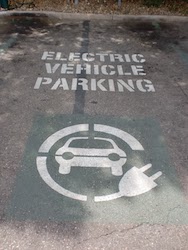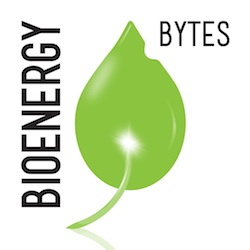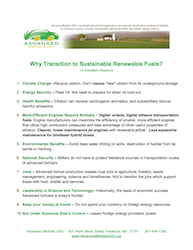Coloradans are breathing cleaner air with the help of the Denver Metro Clean Cities (DMCCC). Utilizing alternative fuels and advanced vehicle technologies, stakeholders displaced 5.88 million gallons of gasoline in 2013. This prevented 27,000 tons of greenhouse gases and air pollutants from entering the atmosphere – equivalent to the carbon dioxide generated by approximately 90,000 homes during five days.
 Clean Cities is a U.S. Department of Energy (DOE) program designed to reduce petroleum consumption in the transportation sector. Colorado is home to three such coalitions, which cumulatively helped stakeholders displace 10.2 million gallons of gasoline and 49,000 tons of greenhouse gases last year.
Clean Cities is a U.S. Department of Energy (DOE) program designed to reduce petroleum consumption in the transportation sector. Colorado is home to three such coalitions, which cumulatively helped stakeholders displace 10.2 million gallons of gasoline and 49,000 tons of greenhouse gases last year.
Tyler Svitak, the Clean Cities Manager at the American Lung Association in Colorado, described how the program works. “We assist public and private vehicle fleets, local governments, fuel providers, utilities, and other stakeholders in beginning or expanding an alternative fuel portfolio, which often involves education, technical guidance, or connection to a similar project locally or nationally.”
The City and County of Denver has had a close relationship with Clean Cities since its inception in 1993, and as the City’s fleet continues to look toward innovative ways to save money and reduce emissions, Clean Cities is assisting in the process.
“The Denver Metro Clean Cities Coalition has been a valuable resource for Denver for years, helping educate our City about alternative fuels and opportunities to implement them,” said Felix Espinoza, Denver Public Works’ Fleet Management Director. “Our partnership with Clean Cities has furthered our goals of incorporating alternative fuels and green technologies that improve air quality, lower operating costs, and provide a healthy, livable, and connected city.”
Svitak explains that harnessing alternative transportation fuels like electricity, natural gas, and propane can dramatically reduce pollutants coming from vehicle tailpipes, increase our nation’s energy security, and boost local economies, but what is often a more convincing argument is the amount of money saved in operating costs from using these alternatives.
Last quarter the average national price of natural gas was $2.09 per gasoline gallon equivalent (the amount of energy in natural gas it takes to equal the energy of one gallon of gasoline), propane was $2.43/gallon, and electricity was $1.16 per eGallon (the electrical energy equivalent of a gallon of gasoline), and for fleets or consumers traveling enough miles, the payback over the life of a vehicle can be significant.
Though, there are still significant challenges to the widespread adoption of alternative fuels and Clean Cities helps to overcome those through education, knowledge, and training. Refuel Colorado, a Colorado Energy Office project aimed at increasing alternative fuel use in the state, incorporates an energy ‘coaching’ program where organizations like Clean Cities, Garfield Clean Energy, and 4CORE help fleets and local governments understand the factors influencing their bottom line, including lifecycle ROI analysis to help look at the long term savings instead of the initial investment.
 Not so long, long ago, in a galaxy not very far, far away, a man dreamed of a owning a Millenium Falcon… powered by biodiesel! You can help make this Star Wars-themed dream come true, as author and filmmaker Luis Aponte has launched a crowd funding project on Indiegogo to build a Millennium Falcon Spaceship Car and have it run on the green fuel.
Not so long, long ago, in a galaxy not very far, far away, a man dreamed of a owning a Millenium Falcon… powered by biodiesel! You can help make this Star Wars-themed dream come true, as author and filmmaker Luis Aponte has launched a crowd funding project on Indiegogo to build a Millennium Falcon Spaceship Car and have it run on the green fuel.









